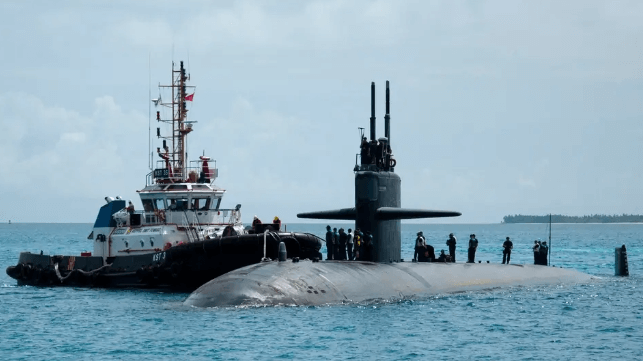Trump's Election Gives Hope to Opponents of Chagos Islands Deal

In the wake of President Trump’s decisive re-election, a political campaign is gathering steam on both sides of the Atlantic to pressure the United Kingdom’s Labour government into abandoning its recent agreement to hand sovereignty over the Chagos Islands to Mauritius.
Diego Garcia is one of 60 islands in the Chagos archipelago, and houses a strategic airfield and naval facility which enables the United States to deploy military forces directly into the Middle East. It is likely the base where B-52 bombers were recently deployed to provide counter-balance while US naval assets are rotated, filling in during the temporary absence of a U.S. carrier strike group in the Mideast.
The agreement with Mauritius, which would sublet sovereignty over the sole island of Diego Garcia to Britain for 99 years, has not yet been debated in the British parliament. UK Parliamentary approval is required before any treaty can become legally binding.
Objections to the agreement focus on the experience of the British in Hong Kong. Once sovereignty was handed over to China, various protections which the British had secured in the treaty were ignored by the Chinese and proved unenforceable. There are fears that whatever was in the agreement to protect continued UK-US use of Diego Garcia might be ignored by a changed government in Mauritius, with the danger that China might then be allowed to establish positions in other islands of the Chagos archipelago. This would compromise the continued secure use of Diego Garcia. The remote base has always had particular value because it is neither threatened nor overseen, in contrast to U.S. facilities within the Middle East region, where operational restrictions on bases can be imposed by host nations.

that matters most
Get the latest maritime news delivered to your inbox daily.
Legal opinion suggests that Mauritius has no particular claim over the Chagos, which geographically lie much closer to the Maldives and the Seychelles. According to the transfer's opponents, UN General Assembly and International Court of Justice support for Mauritius’ claim can be attributed to anti-Western sentiment fueled by Russia and China, which seek strategic advantage. Opposition in the UK has been led both by the Conservative party, now that it is in opposition, and by the Reform Party led by Nigel Farage, who has been a long-term supporter of President Trump.
In the United States, Rep. Michael McCaul (R-TX) and Sen. James Risch (R-ID) - senior members of the House and Senate Foreign Affairs Committees, respectively - have expressed concern with the agreement. Sen. Risch has described the deal as ‘Chinese lawfare’. Sen. John Kennedy (R-LA) has noted there is no cultural, familial or linguistic affinity between Mauritius and the Chagos, and that Chagos islanders do not want to be placed under Mauritian sovereignty. Sen. Marco Rubio (R-FL), who appears to be in the running to be appointed President Trump’s Secretary of State, has also suggested that the deal would "provide an opportunity for communist China to gain valuable intelligence on our naval support facility."
